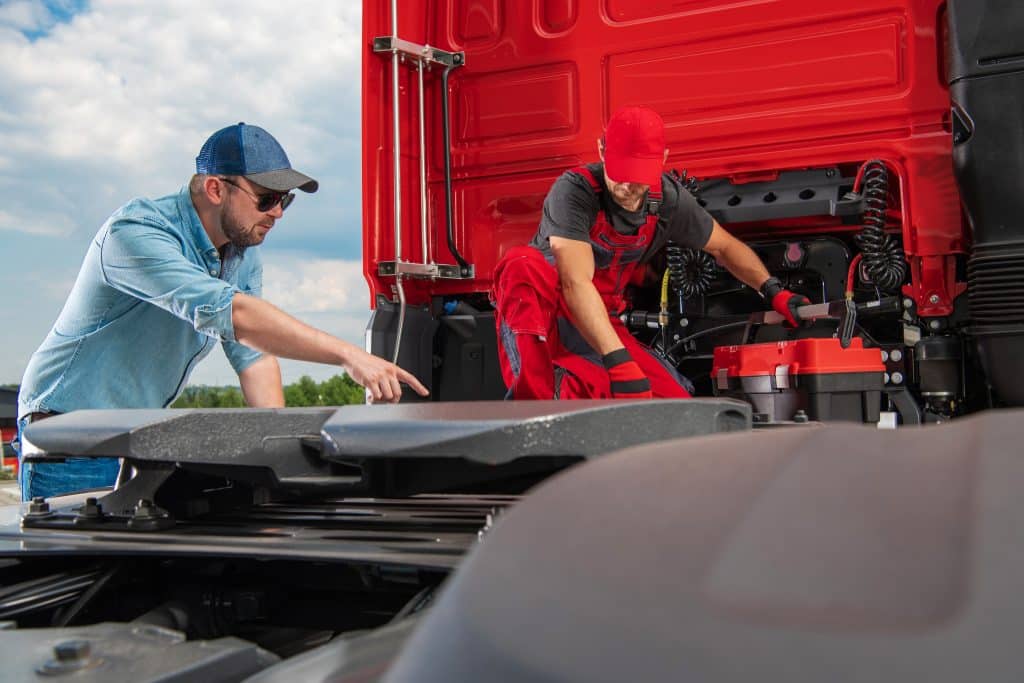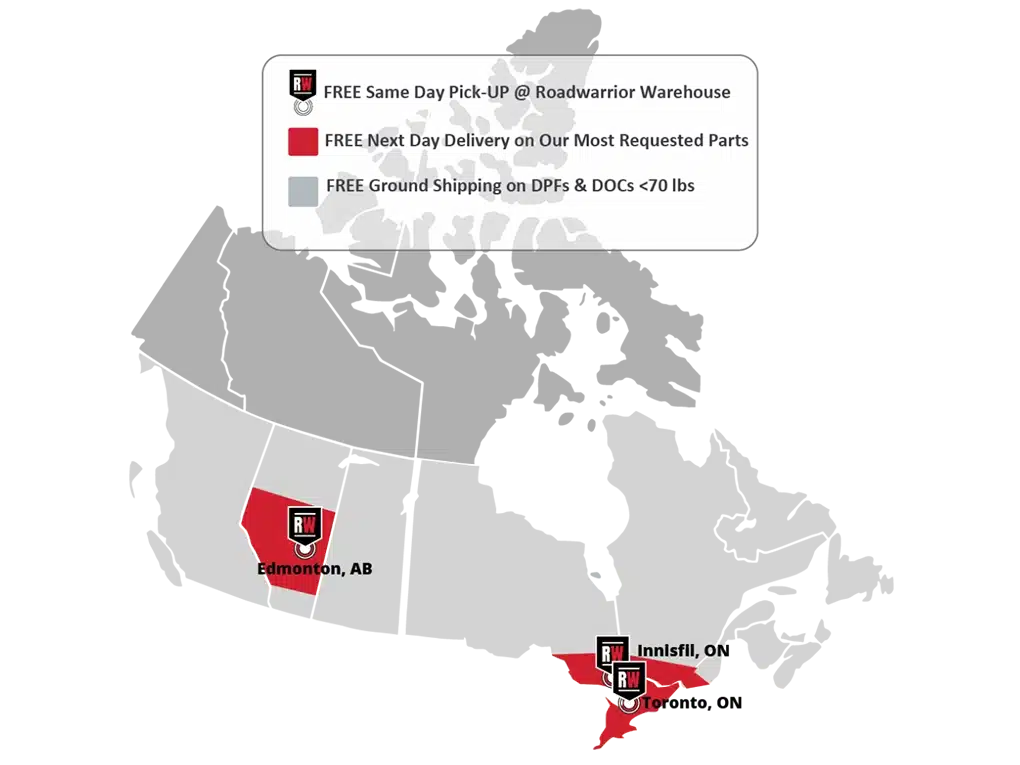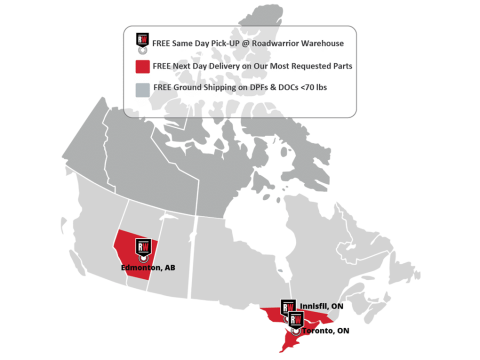A good sleeper cab aims to fit the key components of a kitchen, bedroom and living room into a space 1/10th the size of a studio apartment. Over time, truck manufacturers have come up with a number of ingenious ways to increase driver comfort by maximizing storage space and interior design. Beyond layout differences, there are several factors that determine how comfortable your sleeper cab is: things like temperature, home appliances and electronic devices. But these usually run on stored electricity, and if your sleeper cab doesn’t have enough power to run them, they’re next to useless!
Without enough power, your A/C, heater, electric blanket and even your sleep apnea machine can’t run. Without enough electricity, your coffee maker, fridge, microwave, or toaster oven may as well not be there. And how can you watch a movie or call home without enough juice to charge up your phone and laptop? But the power to run all these appliances has to come from somewhere! For drivers who don’t want or can’t have a noisy diesel generator running their APU, this means an electric APU.

What is an APU?
APU stands for auxiliary power unit. Fuelled by a power source like batteries, it produces electricity that lets you run appliances in your sleeper cab. Electric APUs power your air con and heater, your kitchen appliances and your personal electronics. The right APU can make a big difference to your quality of life on the road, but it can only supply the power it has available. Running an APU on inferior batteries is like running your rig on a limited amount of fuel—it’ll still work but with a lot more restrictions and not for as long.
How Does a Truck APU Work?
When the engine’s running, the APU batteries charge off the engine’s alternator and store the power. Then when the engine’s off and there’s no power from the alternator, the electricity from the batteries powers your sleeper cab. This is where the big ‘lithium or lead-acid battery’ divide comes in!
While lead-acid batteries are great for starting your engine, they aren’t very good in APUs. They’re built to release a lot of their stored power at once, rather than gradually throughout your break the way an APU needs. Using lead-acid or AGM APU batteries forces you to make strategic choices about the appliances you need and the ones you want but can do without. If you don’t, you risk running out of power halfway through your break! This is because traditional batteries aren’t built for deep discharge, so you can only use half the power stored in them before they need recharging. If you keep draining them beyond this point, the battery will degrade very quickly.
In contrast, high-end lithium batteries, optimized for deep discharge, can repeatedly release up to 98% of their stored power without sustaining damage. Lithium batteries also release twice as much power, or the same amount for twice as long, before running out of juice!

Why Do Lithium Batteries Last Longer?
No battery is infinite! Every time you use it and re-charge it—every charge cycle—your battery degrades, its charge capacity decreasing slightly. But a big difference between lead-acid and high-quality lithium batteries is that this process is 10× slower in lithium batteries. They last 10× longer overall before you need to replace them! The fact that the batteries can run for twice as long between charges further slows down the degradation process by halving the number of charges needed per job! These are key reasons why reputable lithium batteries have a higher price point—you’re paying for a much higher-quality, longer-lasting battery!
Common Issues with Lead-Acid Batteries!
Electric APUs are designed to increase driver comfort and let them enjoy their breaks without any added hassle. However, lead-acid batteries are notoriously messy, with leaks, corrosion, fire hazards and maintenance requirements! On top of this, truck batteries get bashed and shaken up a lot when you’re driving down bumpy roads, so they need to be well-designed and tough enough to withstand this! These bumps and vibrations can cause lead-acid batteries to leak and their connections to come loose. This leads to corrosion building up at connection wires, grounds and joining cables! High-end lithium batteries on the other hand don’t cause mess or acid spills, and have very secure connections and internal protection devices. This saves drivers from the extra hassle and dangers of battery maintenance!
Do Electric APUs Save Fuel?
Short Answer: Yes, they do if they use lithium APU batteries.
Long answer: Electric APUs running on lead-acid batteries are hamstrung by capacity limits. They can’t properly power an APU for an 8–10-hour break. This interrupts drivers’ rest periods, often forcing them to idle their engines to charge their APU batteries. But powering a sleeper cab takes much less energy than running a truck and idling to charge APU batteries is a huge waste of fuel! On top of this, the excessive idling creates lots of extra soot, which clogs up the truck’s aftertreatment system! So, drivers end up spending more time doing regens and losing more money on DPF cleaning or replacement!

This is an issue you can get around with lithium batteries!
Fleets with efficient lithium APU batteries enjoy significant fuel savings, as lithium easily stores enough power for the whole 8–10-hour break! As a bonus, lithium APU batteries charge more quickly than other batteries while drivers are going between collections and deliveries! By avoiding the extra idling, these fleets get an edge on the competition, saving fuel and money. On top of this, lithium batteries weigh half as much, increasing payload capacity, and preventing trucks from exceeding weight restrictions!
How Do You Choose a Good Lithium Battery for Your Truck?
Technology always works best in the setting it was designed for, as the unique conditions of that setting are factored into the design! To enjoy the full benefits of upgrading to lithium, it’s important to choose an APU battery that’s optimized for trucks! A high-quality lithium truck battery should meet all of these criteria:
Firstly, does it offer easy plug-and-play installation, and is it a good fit for all major truck APUs? This includes being able to efficiently charge off your truck’s alternator without needing any modifications! Most lithium batteries aren’t designed for trucks and you don’t want to invest in lithium just to end up with a product that isn’t right for your truck!
Secondly, does it have heavy-duty internal connections? A common problem with lead-acid APU batteries is that the bumps and vibrations of driving can shake the connections loose! When you choose a lithium APU battery, pick one that’s designed for trucks and includes extra-sturdy connections to counter this!
Thirdly, does it have built-in safety features? Whatever battery type you choose, it’s impossible to avoid some battery degradation as you use and charge them, but there’s no need to speed up the process! One big thing to avoid is overcharging, as this can damage your battery without providing any benefits! A reputable lithium battery will include a built-in overcharge feature to prevent it from overcharging. High-quality lithium batteries are also a safer option than traditional APU batteries like lead-acid or AGM. A well-designed lithium battery should include a built-in safety feature to prevent sparks and fires!
Does Roadwarrior Offer a Truck APU Battery?
Last year we released our lithium LightningVolt batteries, designed specifically for the trucking market. We then gave trial batteries to the Erb Group of Companies to test out in their refrigerated transportation trucks! 10 months later we caught up with them to see the results of the trial and hear their verdict. You can read all about it and watch the video interview here. You can also learn more about how to easily install LightningVolt lithium APU batteries by checking out the following video:





